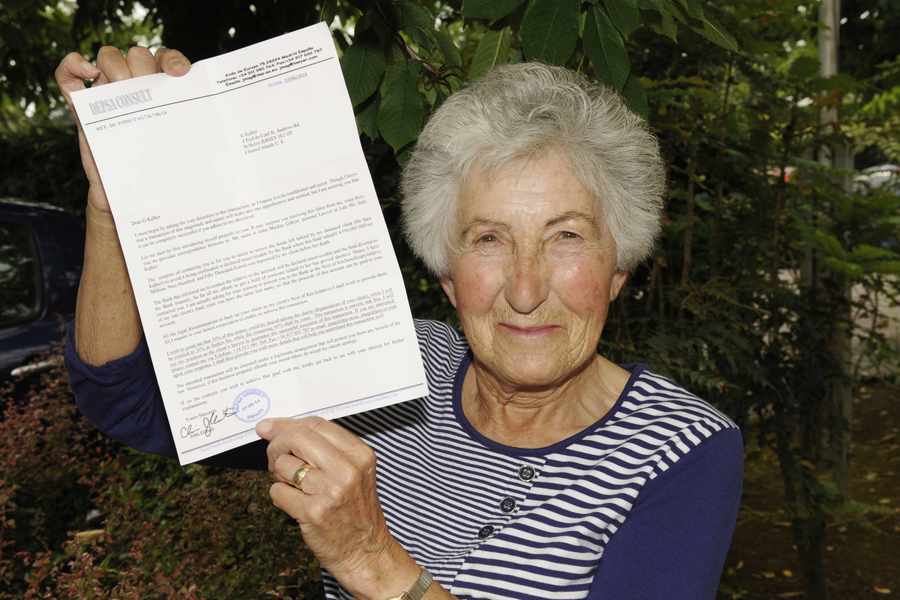- Warning after sports club falls prey to cheque fraud
- The club was alerted to the fraud when someone cashed a cheque for £1,600 from their account
- A documentary recently aired on ITV about a similar scam
A JERSEY sports club has fallen victim to a cheque fraud similar to one which recently cost people, businesses and charities in the UK millions of pounds.
The club, which asked to remain anonymous, was alerted to the fraud when Lloyds Bank contacted them about ‘suspicious activity’ on their account.
The bank told the chairman that a person in Northampton had gone into a branch and cashed a cheque for £1,600 from the Jersey club’s account.
It comes a week after a documentary was aired on ITV which followed London detectives investigating a Zimbabwean gang who had stolen and counterfeited thousands of cheques across the UK over a two-year period.
You can watch the ITV documentary, Fraud Squad, here
The Jersey club chairman, who asked not to be identified, said the bank told him the scam affecting the club appeared to be similar to the one featured on the documentary, which resulted in four people being jailed.
It involves fraudsters printing counterfeit blank cheques using a high-quality printer and then obtaining the account numbers of targets from the internet.
They then write out cheques with forged signatures to someone with a genuine bank account and that person cashes the cheque, taking a cut of the proceeds for allowing their account to be used.
The club chairman said he did not know how the person in Northampton was able to get hold of the club’s bank account details, but he warned others not to publish their account details online.
He said: ‘We have a suspicion that the details may have been on our website at one stage, but we have no idea how they came to find that out.
‘I would ask any other club or company to never publish their bank account details online.’
He said the club had not lost out financially as the bank had absorbed the loss, but it had been inconvenienced as they had their account frozen, affecting 23 cheques.
‘We also had to open a different cheque account, and the bank won’t allow us to write any more cheques until this new account has been set up,’ he said.
The club’s chairman said the bank’s response had been ‘brilliant’ and their quick intervention meant the club avoided losing any money or having to call in the police.
Meanwhile, the States police have issued a warning about another type of scam.
In the scam, the fraudster makes an advance – and supposedly accidental – over-payment by cheque for a hotel room and then makes a request to have the excess repaid.
The cheque is later rejected by the bank, by which time the excess amount has already been paid to the fraudster.
The police are warning the public to take care in returning excess amounts until they are satisfied the cheque has been cleared by their bank.
IN March 2014, Islanders were targeted by scammers who tried to con them into believing that they had cancer. A number of Islanders received emails which claimed to come from the National Institute of Health and Clinical Excellence stating that their blood test results indicated ‘a suspicion of cancer’. In reality, the attachment linked to the email was a virus which, once opened, could allow cybercriminals to take control of their computer and seize personal information, including bank account details. It was part of nationwide scam in which criminals distributed hundreds of emails in a particular area in the hope of finding a recipient who has just had a blood test. Jersey’s Health department issued a warning and urged people to delete any emails claiming to come from the institute.

IN May 2013, Islanders were warned about a scam email purporting to come from the Mustard Seed Jersey charity asking for funds to be sent to the Philippines. The message, which appeared to come from the charity, was sent to more than 500 people after the Mustard Seed Jersey email account was hacked. It claimed that the charity’s founder, Rose Hélie, was robbed during a holiday to the Philippines, had no access to a phone and needed a loan. The email stated that embassy officials and police were failing to provide assistance and that the money was required to buy a new airline ticket. Speaking at the time, Ms Hélie said: ‘Whoever hacked into the account has removed all of my contacts, so I can’t contact people to let them know that the email was fake. I would very, very much like to let people know that it was a scam, and I would very, very much like to thank all the people who contacted me.’






